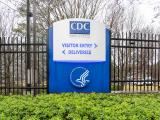Feb 13, 2012 (CIDRAP News) – The Obama administration today proposed a fiscal year 2013 budget that would use prevention funds to cover some preparedness and public health activities and count on user fees to support more of the US Food and Drug Administration's (FDA's) food safety initiatives.
President Obama unveiled his $3.8 trillion budget at an event in Annandale, Va., saying it is designed to cut the federal deficit by shifting more tax burden to wealthier Americans and to boost job creation through infrastructure improvements. The budget, which would take effect in October, is expected to face a tough road in a divided Congress.
In the wake of Obama's budget release, several federal agencies had press briefings of their own today to flesh out some of the details, including two that play a large role in public health, the Department of Health and Human Services (HHS) and the FDA.
At a press briefing to detail HHS's proposed budget, Deputy Secretary Bill Corr said it strengthens healthcare, innovation, and opportunities for children and families. He said the budget will fund the next phases of the Affordable Care Act, which will include helping states set up insurance exchanges that launch in 2014. He said other related investments include the primary care workforce in underserved areas and an expansion of community health centers.
Corr said the proposed HHS budget maintains level funding for the National Institutes of Health (NIH) and includes enhancements for the National Center for Advancing Translational Sciences, which brings regulatory, academic, nonprofit, and private sectors together to speed the development of new cures and treatments.
During a question-and-answer session, reporters noted that the Prevention and Public Health Fund was being tapped to support Centers for Disease Control and Prevention (CDC) activities. Tom Frieden, MD, CDC director, said new activities for detecting and responding to disease threats couldn't occur without assistance from the prevention fund.
During questioning, reporters asked if federal officials had concerns about user fees supporting an increasing percentage of the FDA budget. FDA Commissioner Margaret Hamburg, MD, told reporters that user fees are a significant part of the FDA budget and are consistent with the department's mission and service to industry and the American people.
"User fees have provided a very significant benefit, and in tough times we need to leverage our resources," she said, adding that the fees can help the FDA respond to opportunities in science and technology.
At an FDA press briefing later, Patrick McGarey, assistant commissioner for budget, outlined more details on the FDA's proposed budget. The FDA is requesting $4.5 billion, a 17% increase from the FY 2012 budget, according to a press release.
He said the overall goal is strategic investments to speed the availability of new medications and products to patients. Most of the increase is funded by existing and proposed user fees, with food safety registration fees expected to bring in $220 million.
The FDA budget would include about $253 million for food safety initiatives, including those spelled out in the 2011 FDA Food Safety Modernization Act (FSMA). It also includes $3.5 million for medical countermeasures, $17.7 million to outfit and certify a new FDA biodefense reseach center in White Oak, Md., and $10 million to boost FDA efforts to enhance safety efforts surrounding food and drug imports from China.
Two public health groups weighed in today with concerns about the proposed budgets. The Trust for America's Health (TFAH), a nonprofit advocacy group in Washington, DC, said in a statement that it was "deeply disappointed" in the proposed cuts to prevention and public health programs, including the Prevention and Public Health Fund.
Jeff Levi, PhD, TFAH's executive director, said in a statement, "We recognize that these are difficult fiscal times, but cutting prevention is penny wise and pound foolish, and will only end up increasing the economic burden to the healthcare system and adding to the deficit over the long run."
He noted that Obama's budget proposal cuts base funding for the CDC by $660 million and suggests a long-term reduction in the Prevention and Public Health Fund by $4.5 billion over the next decade. The 11% cut to the CDC's budget authority is the largest of any HHS agency and represents about a $1.4 billion cut since FY 2010.
Tapping the prevention fund for base budget activities runs counter to its purpose, which is to spark new investments that improve healthcare and reduce the nation's costs, Levi said in the statement. "This proposed budget is the first step in a lengthy process," he said. "We look forward to working with Congress to ensure we maintain our investment in prevention."
In a statement e-mailed to reporters, the National Association of County and City Health Officials (NACCHO) applauded the Obama administration for funding key public health initiatives but raised concerns about cuts to important programs.
Robert Pestronk, NACCHO's executive director, said that though the $1.25 billion in the prevention fund includes some investments in public health infrastructure, such as workforce training and increased lab capacity, the president's budget misses key opportunities to bolster public health services that have been hit hardest by recent budget cuts, leaving gaps in areas such as emergency preparedness, environmental health, and immunization.
He said the most troubling cuts were to Community Transformation Grants, targeted to chronic disease reduction, the Section 317 Immunization Program, and a public health workforce program at the Health Resources and Services Administration. Pestronk also said the budget proposal would eliminate Preventative Health and Health Services Block Grants, which have been a flexible resource for state and local health departments.
Pestronk also echoed Levi's concerns about erosion of the Prevention and Public Health Fund over the next 10 years.
See also:
Feb 13 HHS 2012 budget materials
Feb 13 FDA press release
Feb 13 TFAH press release


















